Christmas in P.E.I.'s Bygone Days
Reginald "Dutch" Thompson's column The Bygone Days brings you the voices of Island seniors, many of whom are now long-departed. These tales of the way things used to be offer a fascinating glimpse into the past. Every second weekend CBC P.E.I. will bring you one of Dutch's columns.
Christmas in P.E.I.'s bygone days was a very different affair than it is now — although all the usual excitement was there, there wasn't the excess today's children have become used to in most North American households.
"I remember when I was very young, we didn't have a Christmas tree," recalled Jean MacDonald.
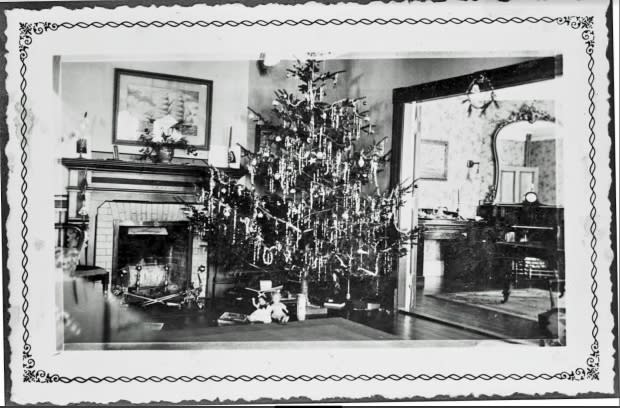
"But we always hung our stockings up — we used to hang them in the dining room along the wall. There was eight or nine of us! We'd make quite a hullabaloo, there wasn't much sleep that night!"
Christmas trees were rare
MacDonald was born in 1905 in St. Peters, P.E.I., and lived to be 105 years old — even older than her renowned father, Dr. Roddie MacDonald of St. Peters, who took care of the area's medical needs for about 70 years of the last century, practising until he was well into his 90s.

MacDonald said when she was a bit older, the family did put up a Christmas tree, one of the few in the district.
You put your wooden shoe out on the bottom of the fireplace. — Fred deJonge
One thing the MacDonald kids had in common with neighbours like the Quigleys and the Ledwells — in their stockings they always found the old standbys of an apple, an orange and some barley candy.
There weren't many presents back in those days, even in a doctor's house — probably because Dr. Roddie wasn't always paid for his services and if he was, it was often bartered for goods or services.
Store-bought presents were rare — however, one year MacDonald's aunt Alena made Christmas unforgettable.
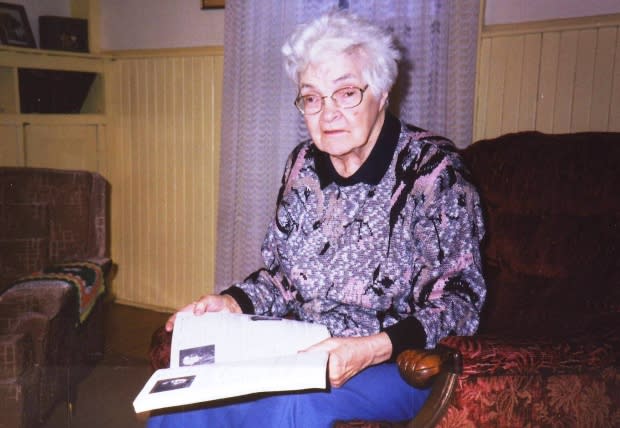
"The first doll I ever had that would close its eyes, dear aunt Alena she gave it to me. She was in Government House at the time, and she got me this beautiful doll. It wasn't a very big doll. It was made of fine, fine leather and her eyes would open and shut! That was a wonderful thing! Nobody had a doll with eyes that would open and shut, but I did!" MacDonald said with a hearty laugh. In fact MacDonald still had the doll more than 90 years later, and proudly showed it to Thompson.
Flour bags made a memorable Christmas
Cotton bags for flour and sugar were recycled in the 1930s and '40s into everything from bed sheets to underwear.
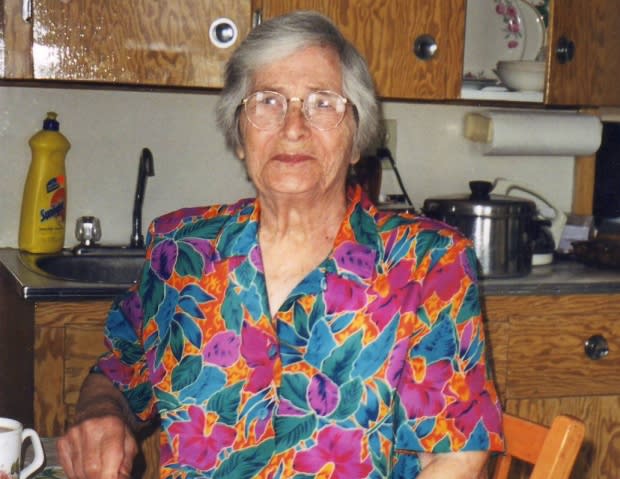
Ada MacKenzie, from Beach Point, was born on Nov. 11, 1918. When Thompson spoke with her she was 92. MacKenzie recalled the days of spinning bees and neighbours sharing food. She and her husband Chester, who was a fisherman, used to swap fresh fish for milk and beef.
MacKenzie said the best Christmas they ever had was in 1933 in the middle of the Great Depression. A neighbour couldn't sell his crop of potatoes, so Chester bought 100 bags for nine cents per bag. The bags each weighed 90 pounds, so the MacKenzies paid only about one-tenth of a cent per pound.
Chester then loaded his schooner and sailed across the Northumberland Strait to Pictou County, N.S.
"They'd take loads of vegetables over and they'd have barrels of salted pork and everything to sell," she said. "He'd bring me bags home, he'd get the bag from the restaurants or the bake shops. One time he had as many as a hundred bags!"
One gift from the catalogue
Each bag cost Chester five cents, and was about a yard and a quarter of cotton. MacKenzie used the flour bags to make Christmas presents for the couple's seven children.
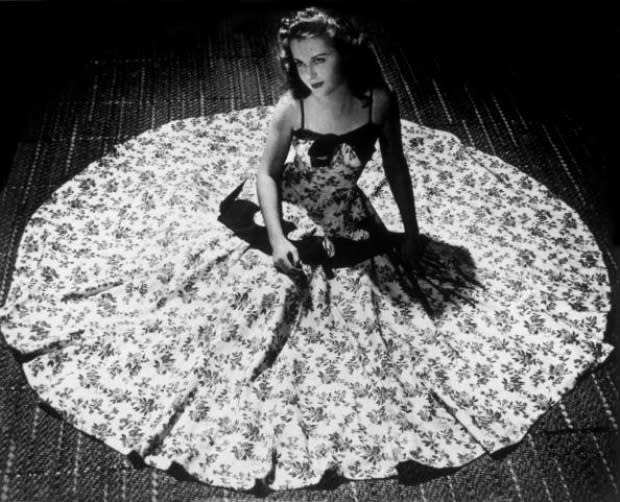
MacKenzie's favourite bags were printed in beautiful coloured prints. She got those a few years later when Chester worked at Nathan Irving's feed mill, which imported Cream of the West Flour which used the pretty bags.
"And it was about the best thing that ever hit the place, it was lovely. I got quilts they wore for years that was made with them flour bags," she said. She'd wash the bags, dye them, and make them into aprons, curtains, dish towels and children's clothing.
"The sugar bags was a lot heavier, they wore a lot better," she said. "It was good stuff! Ya. But back them times, everything you had that you could make over, you made over."

While MacKenzie remembers fondly the year Chester brought home so many bags, her son Jim said that the MacKenzie children's best Christmas was the year their parents plunked down an Eaton's catalogue on the table and told the kids they could each order one present. That was in the 1950s and it was their first store-bought clothes.
A washtub under the tree
A generation earlier, in 1897, Kathleen Cameron was born in Summerside.
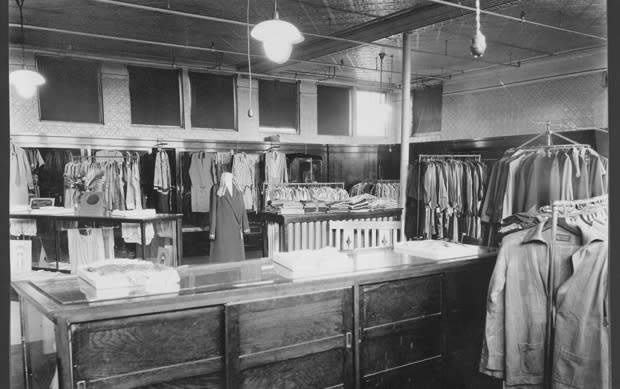
There were 11 stockings hung over the Cameron fireplace — mother, father and nine children. The family decorated the Christmas tree with real candles, and always left a special salt pork lunch for Santa and Rudolph plus the children's wish list.
"A list as long as your arm!" she told Thompson — she was 101 years old when he interviewed her in 1998. They received mostly clothing, "things that were really needed. He was pretty good to us."
One year those "useful" presents included a wash board and a galvanized metal wash tub for her mother.
Jack rabbit for Christmas dinner
Fred deJonge (his given name was Meeuwis Ferdinandus) lived in Vernon Bridge, P.E.I., for years but he and his five brothers and sisters grew up on a farm in Hoek, in southwest Holland.
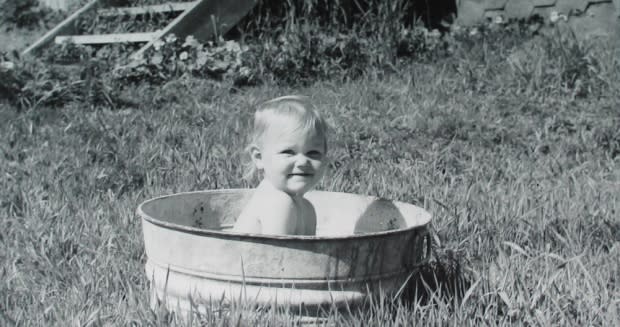
Times were especially tough in The Netherlands during the German occupation in the Second World War. In order to survive, the Dutch took recycling to a new level. The food grown on the family's farm was confiscated by the Germans, and when Saint Nicholas Day came around, the presents were few and far between.
"That's a different kettle of fish for us altogether. We have Christmas as Saint Nicholas on December 5th, instead of the 25th," deJonge explained.
Saint Nicholas was thought by the children to come in a boat from Spain, riding a white horse. If children had been bad, he'd put them in a coal sack and take them back to Spain. No one wrote to him or left him or his horse a meal.
"You put your wooden shoe out on the bottom of the fireplace," deJonge said. In the morning the children might find an orange, a banana or a small toy there.
"A good big jack rabbit" was a Christmas meal then, he said. "There was no turkeys before the war." They also baked cookies in shapes of animals and people.
'You never got nothing foolish'
Ralph Gallant was born on a farm in Duvar in western P.E.I., and like his father, Ralph was a noted horse trainer. In fact once when Ralph was supposed to be serving time in the Prince County Jail for making moonshine, he was actually out at the racetrack training the sheriff's racehorses.
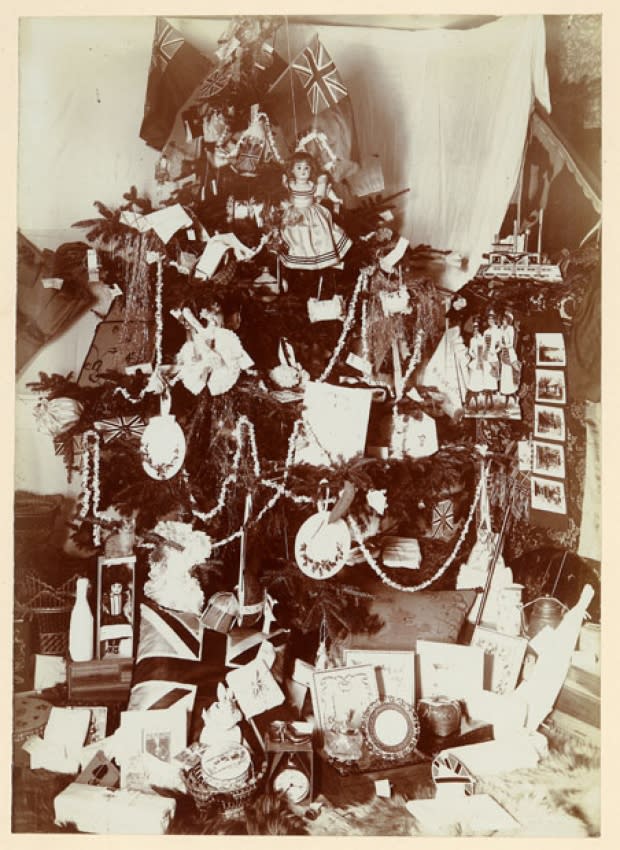
Gallant describes Christmas memories from his boyhood.
"Do you know what my father used to do before Christmas? He'd send me to the blacksmith shop with a horse, that's when I was 10 years old or something. Get a horse shod for $2. Then I came home, he'd say 'Ralph grease that wagon and put two gallons of grain in a bag,'" Gallant recalled. The next morning his father and mother would spend the entire day hauling geese they'd slaughtered to Summerside to Holman's to sell for Christmas dinners.
"Them times there was no such a thing as presents," Gallant said. The kids would hang their socks on an indoor clothesline, and on Christmas morning each would have candy, an orange and an apple.
"They'd buy me a hand sleigh or a set of snowshoes or skis — you never got nothing foolish," he said.
One of Gallant's favourite gifts was a small box sleigh he hitched to his dog, a big German shepherd.
"I used to put a hundredweight of flour in it and jump on it and the dog would take me home," he said. "Hauled me right home right to the door — Robin Hood flour, I remember that."
More P.E.I. news

